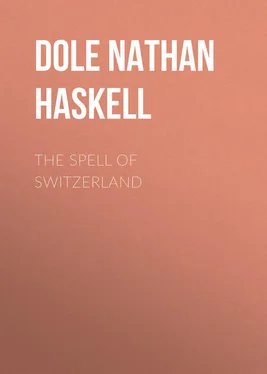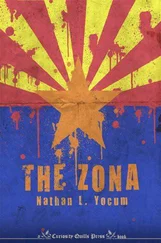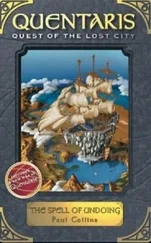Nathan Dole - The Spell of Switzerland
Здесь есть возможность читать онлайн «Nathan Dole - The Spell of Switzerland» — ознакомительный отрывок электронной книги совершенно бесплатно, а после прочтения отрывка купить полную версию. В некоторых случаях можно слушать аудио, скачать через торрент в формате fb2 и присутствует краткое содержание. Жанр: foreign_antique, foreign_prose, на английском языке. Описание произведения, (предисловие) а так же отзывы посетителей доступны на портале библиотеки ЛибКат.
- Название:The Spell of Switzerland
- Автор:
- Жанр:
- Год:неизвестен
- ISBN:нет данных
- Рейтинг книги:5 / 5. Голосов: 1
-
Избранное:Добавить в избранное
- Отзывы:
-
Ваша оценка:
- 100
- 1
- 2
- 3
- 4
- 5
The Spell of Switzerland: краткое содержание, описание и аннотация
Предлагаем к чтению аннотацию, описание, краткое содержание или предисловие (зависит от того, что написал сам автор книги «The Spell of Switzerland»). Если вы не нашли необходимую информацию о книге — напишите в комментариях, мы постараемся отыскать её.
The Spell of Switzerland — читать онлайн ознакомительный отрывок
Ниже представлен текст книги, разбитый по страницам. Система сохранения места последней прочитанной страницы, позволяет с удобством читать онлайн бесплатно книгу «The Spell of Switzerland», без необходимости каждый раз заново искать на чём Вы остановились. Поставьте закладку, и сможете в любой момент перейти на страницу, на которой закончили чтение.
Интервал:
Закладка:
Perfectly beautiful also stood out the peak of what the Western “Cookie” called “the grand Combine” – like the pyramid of Cheops beatified and changed into sugar. As we expected to stop at the Castle of Chillon I had brought with me an amusing “Guide” to that historic shrine and I discovered in it a description of La Dent du Midi. It says: —
“What a magnificent object that Dent du Midi is, if we regard it, standing out so clearly from its base to its summit, rising so boldly and by endless degrees from the depth of the valley up to the gigantic wall, the strata of which are intersected by narrow passes, where the snow lodges and gives birth to the glaciers, the largest of which are spread out like a streak of silver as far down as the pasture-fields. In its central and unique position, the Dent du Midi, with its seven irregular peaks, crowns and worthily completes the picture.”
Then the author goes off into poetry: —
“Dost thou know it, the dull blue wave
Which bathes the ancient Wall of Chillon?
Hast seen the grand shadow of the rocks of Arvel
Reflected in that azure sea?
Knowest thou Naye and its steep crest
And the toothed ridge of Jaman?
Hast thou seen them, tell me, hast thou seen them?
Come here to these scenes and never leave them!”
I suppose it is really one’s duty to know the names of the mountains, just as one must know the botanical names of flowers. Nevertheless, only within comparatively few years have distinctive names been actually fastened to special mountains. The names, foreign to English, when translated into English are often to the last degree banal. A typical example is the Greek headland with its high-sounding appellation, Kunoskephale, which means merely Dog’s Head; and those that first gave the Alps a generic name could not devise anything better than a word which means “White.” What would not the imaginative American Indians have called Mont Blanc! Very probably the Keltic inhabitants of these regions, with their poetic nature, would have named it something better than just “White Mountain!” The Romans might have the practical ability to build roads over the hills, but they could not name them!
Juste Olivier, however, goes into ecstasies over the names of some of the Swiss mountains. He says: —
“What more charming, more fresh and morning-like than the name of the Blümlisalp? What more gloomy than that of the Wetterhorn, more solid than that of the Stockhorn, more incomparable than that of the Jungfrau, more aerial and whiter than that of the Titlis, more superb and high sounding than that of the Kamor, more sparkling and vivid than that of the Silberhorn, more terrible than that of the Finsteraarhorn which falls and echoes like an avalanche!”
He is still more enthusiastic over the Alps of Vaud: – Moléson with its round and abundant mass so frequently sung by the shepherds of Gruyères, the slender, white, graceful forms of La Dent de Lis and Le Rubli. And he finds in the multitude of names ending in az – Dorannaz, Javernaz, Oeusannaz, Bovannaz – something peculiarly alpestrine and bucolic, as if one heard in them the horn-notes blown by the herdsmen, and their long cadenzas with the echoes from the mountain walls; and the solemn lowing of the cows as they crop the flowery grass and shake the big copper bells fastened to their necks. There is an endless study in names of places as well as in names of people. Often centuries of history may be detected in a single word.
Meantime we have been speeding along, cutting through the fabric of the lake as if we were a knife. Behind us radiated two long, dark blue lines tipped with bubbles and mixing the reflections of the gracious shores. Oh, this wonderful lake! Vast tomes have been devoted to its poetic, picturesque, scientific characteristics. Almost every inch of its vast depths has been explored. No longer has the wily boatman, as he steers his lateen-sailed lochère , any excuse for telling his occasional passenger (as he used to tell James Fenimore Cooper) that the water is bottomless. Every fish that swims in it is known and every bird that floats on its broad bosom.
A lake is by no means a lazy body of water and Leman, or Lake Geneva, as it is often called, is not so much a lake as it is a swollen river. If the Rhône is an artery, the lake is a sort of aneurism; there is a current from one end to the other which keeps it constantly changing. Then, owing to atmospheric conditions, at least twice a year (as in even the most stagnant ponds) the top layers sink to the bottom and the bottom layers come to the top. There is also a sort of tide or tidal fluxes, called seiches . The word means originally the flats exposed by low water, but is applied here to variations averaging ten inches or so in the level of the lake, but sometimes greatly exceeding that. There were three or four in one day in September, 1600, when the lake fell five feet and boats were stranded. De Saussure, one August day in 1763, measured a sudden fall of 1.47 meters, or four and a half feet, in ten minutes’ time. Eight years previously, the effect of the great earthquake which destroyed Lisbon was noticed in the vibration of the lake. Various explanations of this curious phenomenon have been given. One was that the Rhône was stopped and, as it were, piled up at the so-called Banc du Travers – a bar or shallow between Le Petit Lac and Le Grand Lac which begins on a line between La Pointe de Promenthoux on the north and La Pointe de Nernier in Savoy on the south. It is probably due to the sweeping force of the winds. When there is a heavy storm waves on the lake have been observed and measured not less than thirty-five meters long and a meter and seven tenths in height.
James Fenimore Cooper in his novel “The Headsman of Berne,” published anonymously while he was United States Consul at Lyons, thus describes this wonderful body of water: – “The Lake of Geneva lies nearly in the form of a crescent, stretching from the southwest towards the northeast. Its northern or the Swiss shore is chiefly what is called, in the language of the country, a côte , or a declivity that admits of cultivation, and, with few exceptions, it has been, since the earliest periods of history, planted with the generous vine.
“Here the Romans had many stations and posts, vestiges of which are still visible. The confusion and the mixture of interests that succeeded the fall of the Empire gave rise in the middle ages to various baronial castles, ecclesiastical towns and towers of defence which still stand on the margin of this beautiful sheet of water, or ornament the eminences a little inland… The shores of Savoy are composed with unmaterial exceptions of advanced spurs of the high Alps, among which towers Mont Blanc, like a sovereign seated in the midst of a brilliant court, the rocks frequently rising from the water’s edge in perpendicular masses. None of the lakes of this remarkable region possess a greater variety of scenery than that of Geneva, which changes from the smiling aspect of fertility and cultivation at its lower extremity to the sublimity of a savage and sublime nature at its upper.”
It seems almost incredible, but Lausanne lies a good deal nearer to the North Pole than Boston does. The degree of latitude that sweeps across the lake where we started cuts just a little below Quebec, nearly touches Duluth and goes a bit south of Seattle. There are really three lakes, forming one which, in its whole extent, has a shore-line of one hundred and sixty-seven kilometers, the north shore being twenty-three longer than the south. Its greatest width is thirteen and eight-tenths kilometers, and it covers an area of about five hundred and eighty-two square kilometers. Its maximum depth is 309.7 meters. It is a true rock basin. The Upper Lake is, for the most part, a level plain, filled by the greyish-muddy Rhône which uses it as a sort of clearing-house. Being denser than the lake, the water of the river sinks and leaves on the bottom its perpetual deposits of mud, coarser near the shore, finer the farther out one goes. When the bottom of the Grand Lake is once reached, it is as flat as a billiard-table. Sixty meters from the Castle of Chillon it is sixty-four meters deep and shelves rapidly to three times that depth.
Читать дальшеИнтервал:
Закладка:
Похожие книги на «The Spell of Switzerland»
Представляем Вашему вниманию похожие книги на «The Spell of Switzerland» списком для выбора. Мы отобрали схожую по названию и смыслу литературу в надежде предоставить читателям больше вариантов отыскать новые, интересные, ещё непрочитанные произведения.
Обсуждение, отзывы о книге «The Spell of Switzerland» и просто собственные мнения читателей. Оставьте ваши комментарии, напишите, что Вы думаете о произведении, его смысле или главных героях. Укажите что конкретно понравилось, а что нет, и почему Вы так считаете.












